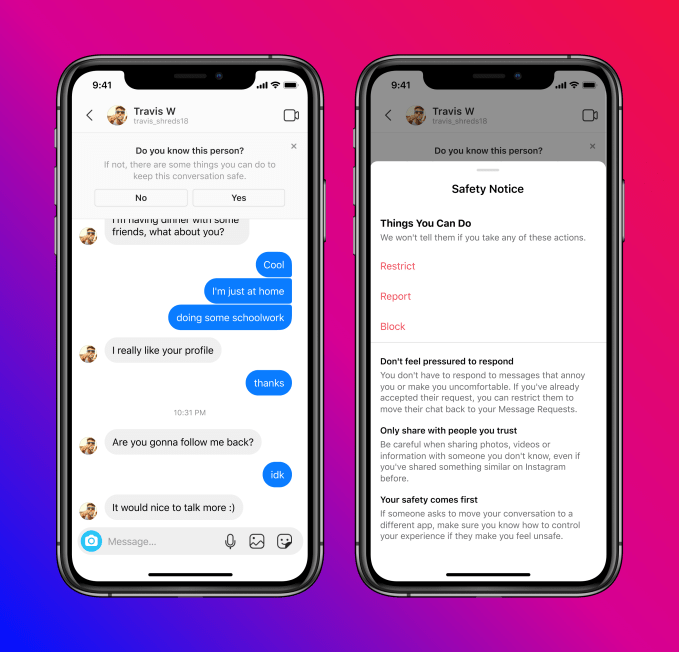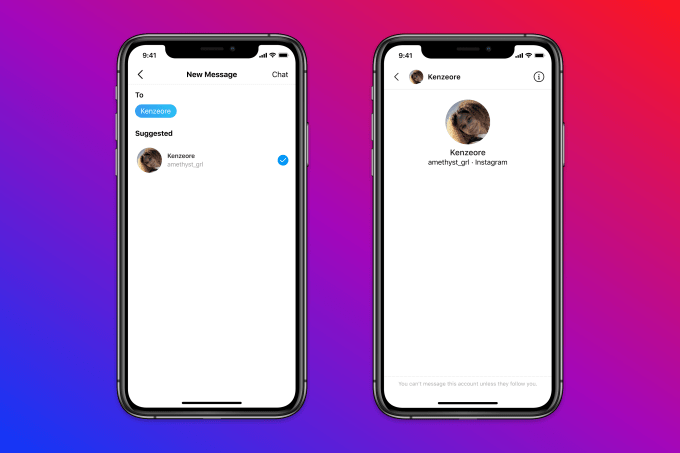Earlier this year, TikTok made an update to its privacy settings and defaults to further lock down the app for its teenage users. This morning, Instagram followed suit with teen-focused privacy updates of its own. But the Facebook-owned social app didn’t choose to add more privacy to teen accounts by default, as TikTok did — it largely made it more difficult for adults to interact with the app’s teen users.
The company said it’s rolling out new safety features that would restrict adult users from being able to contact teens who didn’t already follow them. The exception to this rule would still allow the teen to interact with adult family members and other trusted adults on the platform, like family friends. In the case that an adult tried to DM a teen who didn’t follow them, they’d receive a notification informing them this wasn’t possible.
And if the teen has already connected with an adult and is DM’ing with them, they’ll be notified if that adult is exhibiting suspicious behavior — like sending a large amount of friend requests or messages to users under 18. This tool will also then allow the teen to end the conversation, block, report or restrict the adult from further contact.

Image Credits: Instagram
In addition, Instagram said it will make it more difficult for adults to find and follow teens in other places within the Instagram app, including Explore, Reels, and more. This will include restricting adults from seeing teen accounts in the “Suggested Users” section of the app, as well as hiding their comments on public posts.
The company also noted it’s developing new A.I. and machine learning-based technology that would make it possible to find teens lying about their age on the app. This could result in these features being applied, even if the teen in question had lied about their birth date when signing up for the app, but the technology isn’t fully live yet.
Other additions rolling out as part of today’s updates include new safety resources for parents in the app’s Parents Guide and educational material for teens that will better explain what it means to have a public account on the app, and encourage them to choose private options.

Image Credits: Instagram
The launch timing here is notable, as TikTok has recently focused on making its platform safer for teens — not only with the changes to its default settings, but also with the addition of parental controls last year. The company last year took the unusual step of bundling a parental control mechanism directly into its app that lets a parent link to a child’s TikTok account to control their profile’s privacy, what they’re allowed to do on the app, and even which feed they can view. The company has continued to expand these controls following their launch, indicating that it considers these core features. By making privacy and parental controls a key part of the experience, the app is more likely to be blessed by parents who would otherwise restrict their teens’ social media access — and that helps TikTok grow its user base and teens’ time spent in the app, sometimes at Instagram’s expense.
